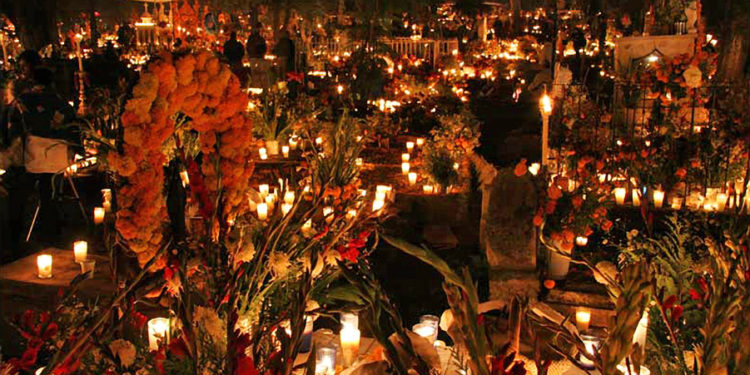From the 1st to the 2nd of November, Mexico celebrates the Day of the Dead (Día de Muertos). This festive holiday marks a special time in which families all across Mexico, and Mexicans throughout the world, commemorate the lives of their deceased loved ones by honouring their memory by erecting altars (ofrendas), eating their favourite foods and spending time with close friends and family.
The observance of the Day of the Dead dates back thousands of years to the indigenous cultures of Mexico, but its modern expression derives from the creole fusion of these cultures with the European culture brought by the Spanish that generated modern Mexico. During the time of the Aztecs, people would engage in annual festivities to pay homage to their ancestors and all other close relatives who had passed away to Mictlan, their version of the afterlife. Upon the arrival of the Spaniards in the 16th century, these traditional activities were continued and, over the years, the rituals evolved through the synthesis of Spanish Catholicism and the Aztec worldview. The celebration is distinctive in the fact that it portrays death as a continuity of life and not as something to be mourned or feared, in stark contrast to other festivities associated with All Saint’s Day, such as Halloween.
Today, the Day of the Dead celebrations in Mexico continues to embody the traditional symbolism of respect, honour and love for those who have lost their lives. This is evident in the beautiful altars or ofrendas set up in family households, which are typically decorated with flowers (particularly marigolds), candles, food and most importantly, photographs of the deceased as a gesture of welcome to the spirits returning home. Additionally, families also visit the cemeteries to place similar items on the graves of their loved ones while recalling fond memories of the past. Other common traditions of these festivities include sugar art in the form of skulls, face painting and, more recently colourful parades.
In 2008, UNESCO recognized the significance of Mexico’s Day of the Dead by including the festival in its list of Intangible Cultural Heritage of Humanity.











